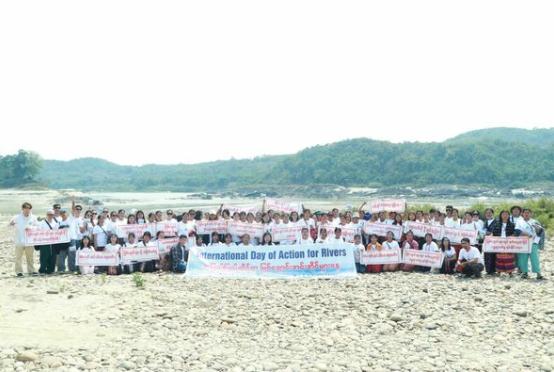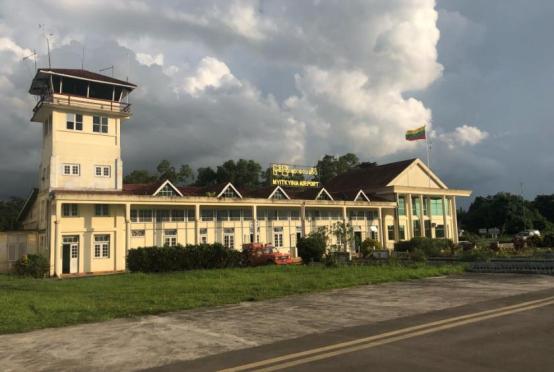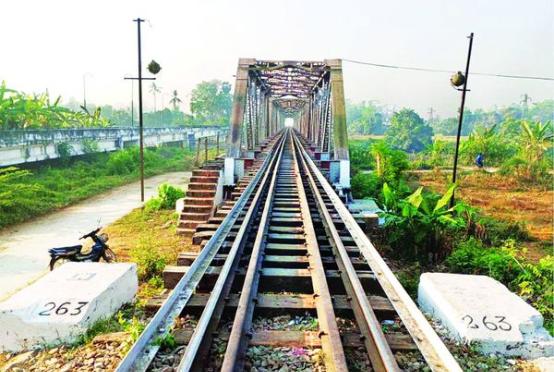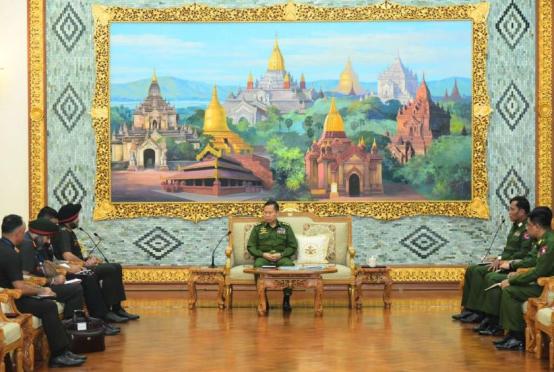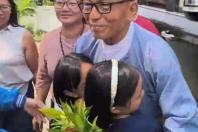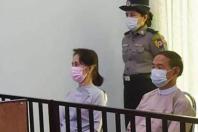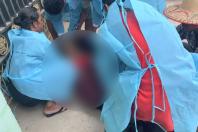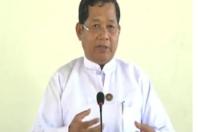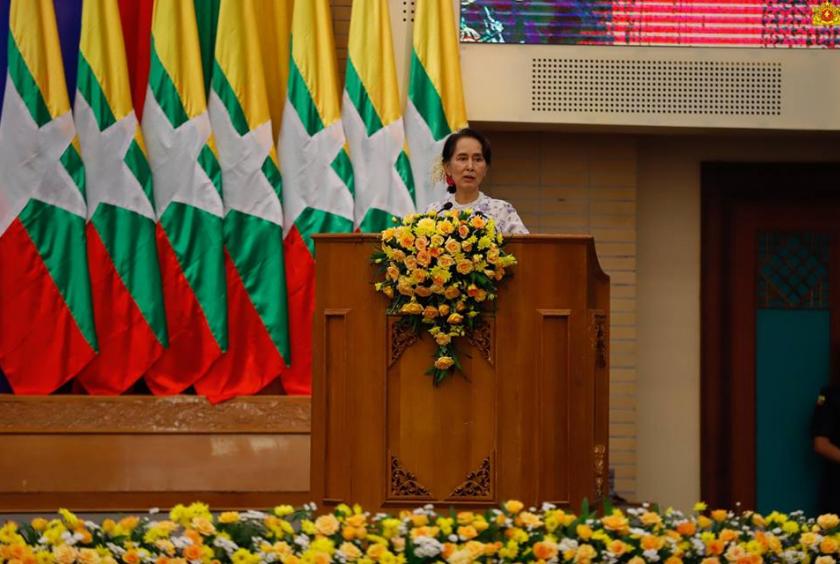
Respect and understanding for religious and cultural diversity would contribute to lasting peace and security, said State Counsellor Aung San Suu Kyi.
The remarks of the State Counsellor came from her speech at Advisory Forum on National Reconciliation and Peace in Myanmar held at Myanmar International Convention Centre II in Nay Pyi Taw on November 21.
Aung San Suu Kyi said in her speech, saying, “The first is we need to promote interfaith dialogue. Respect and understanding for religious and cultural diversity would contribute to lasting peace and security.
“For Interfaith dialogue to be truly effective, it should not be limited to religious leaders. It must extend to all so that it results in the meeting of minds and hearts.”
“The second issue we need to address is education. Education is essential for overcoming prejudices and stereotyping, mistrust and discrimination. It is only through education that we can promote a culture of peace that ensures mutual respect.
“Third, we need to address the root causes of violent extremism. Youth are attracted to extremist ideologies because they feel socially alienated and excluded, or because of poverty and chronic unemployment.
“The people of Myanmar yearn for peace and for a chance to secure a better future for their children. Fully aware of the aspirations of our people, our new administration has been taking steps to implement plans to build upon the peace process that was initiated by the previous government,” said Aung San Suu Kyi.
The Twenty-first Century Panglong Conference seeks to put an end to the armed strife that has ravaged Myanmar since its birth as an independent nation, and to construct a strong democratic federal union founded on a lasting unity created out of diversity, said Aung San Suu Kyi.
In each of the three Panglong meetings held over the past two years, we made valuable progress, said Aung San Suu Kyi.
In the First Union Peace Conference, the seven-step roadmap for peace and national reconciliation was achieved. In the Second Conference, 37 principles were adopted,” said Aung San Suu Kyi.
Before the Third Conference, two more ethnic armed groups signed the ceasefire agreement and during the Conference itself, 14 more principles were agreed upon and adopted, said Aung San Suu Kyi.
Aung San Suu Kyi added, “Serious challenges remain and clashes continue to break out between the Tatmadaw and the Ethnic Armed Organizations (EAOs), as well as the EAOs themselves. We are constantly alert to the challenges and we aim to resolve them through dialogue and negotiation, by preserving in the endeavor to build mutual trust and understanding. We believe that building relationships through dialogue is the best way to build peace.
“Another area where we are in dire need of peace and reconciliation is as you all know well, Rakhine. In full awareness of the need to disentangle the knot of fear and anger, frustration and poverty that had resulted from long years of neglect to address fundamental issues, as soon as our Government took over the administration, we made rule of law and development in Rakhine one of our uppermost priorities. I will not now go into the details of the round of troubles that began with the terrorist attacks on police outposts in Rakhine in October 2016 as these have been well recounted many times. I believe that you are here to find constructive, sustainable ways of building harmony and trust between all communities in Rakhine.”
I thank you for the goodwill and the desire to make understanding and loving kindness triumph over prejudice and hate, that has brought you together here today. I look forward to the ideas that will emerge from the meeting of minds that are committed to the promotion of peace and reconciliation, said Aung San Suu Kyi.
I would like to conclude by saying that peace and reconciliation are positive values, and they have to be rooted in positive values. They are not simply an absence of disagreement and conflict. They have to do with the strong presence of positive values that believe that we are all here, today, together, to make our world a better place. I am not an expert on religions but I believe religions are there to make us understand why we are here now in this existence, and how we can go forward into the future. So, I look to all these religious leaders present here today to find answers to these questions that will bring us to all together; why are we here in this world today? And what can we look forward to now in this existence, and in the here after?” said Aung San Suu Kyi.
Aung San Suu Kyi continued to say, “I would like to affirm that I am greatly inspired by the efforts of those here today to build the relationships that are necessary to avoid and end conflict. But that’s not where the endeavor for peace and reconciliation end. It’s not simply the absence of conflict, it’s the presence of values and beliefs that will strengthen peace and reconciliation.
“I am confident that this dialogue will contribute to fostering of closer cooperation between different faiths not just in this country but throughout the world, because I know that Religions for Peace operate throughout the world and I would thank you especially for focusing your attention now on our country and your determination and your charity, in the old-fashioned sense of the word, charity as loving kindness which has brought you here to be with us.”
Edited by Win Htut

